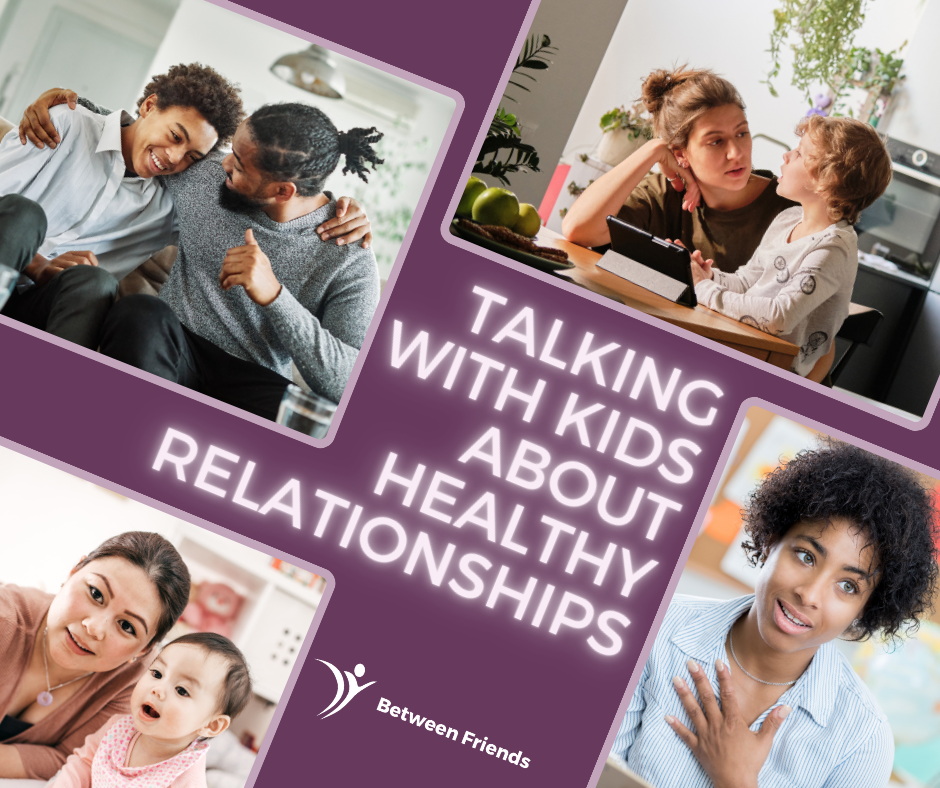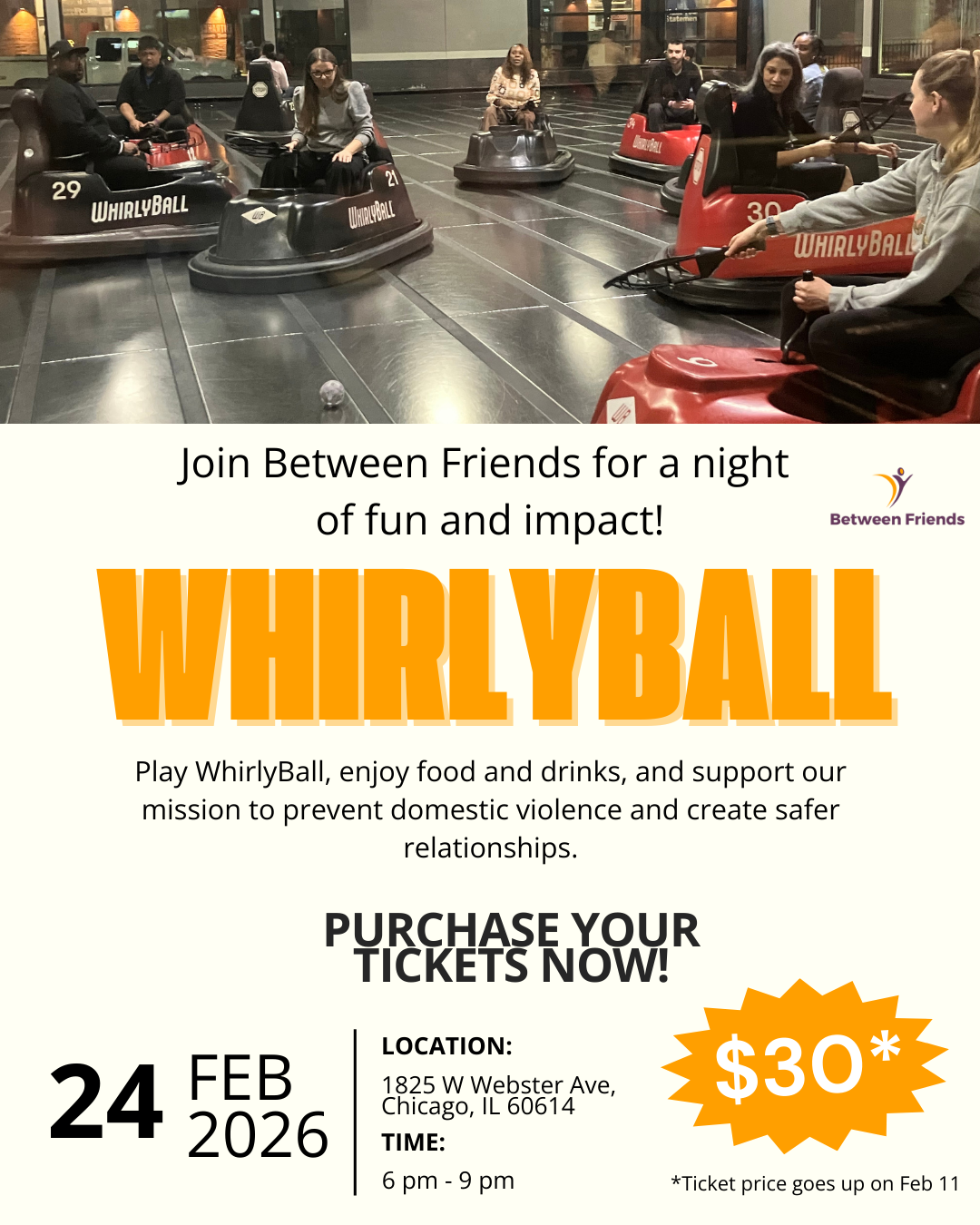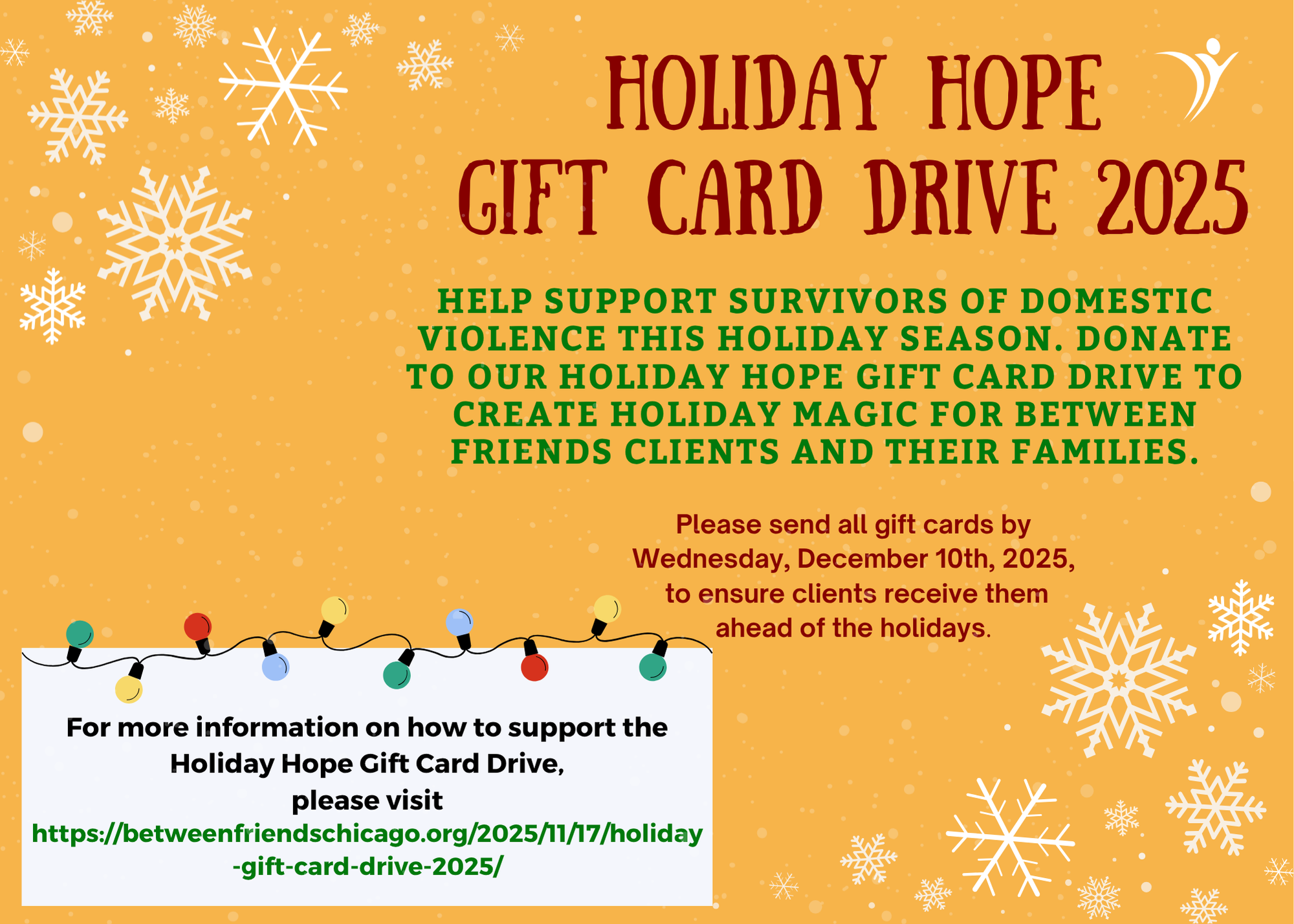Written by Between Friends’ Community and Professional Training Manager
Talking with the young people and children in your life about healthy relationships, dating, sex, boundaries, consent, and their bodies can be intimidating and can feel uncomfortable or even controversial. Many of us fear that if we mention sex, we might encourage them to experiment and do something they are not ready for. Or we may feel embarrassed or worry about embarrassing them. These hesitations are very natural and come from a place of love and concern for our kids. There is not much guidance for parents or trusted adults on how to have this conversation. There also is little awareness that we are giving our kids powerful messages about these topics even when we are not having conversations.
So, let us explore some of the best practices around teaching our kids to have healthy relationships:
- It starts early. Even as infants, kids are learning about attachment, safety, respect, trust, affection. By being in relationship with us, we are teaching them what relationships are all about.
- We can keep our children safer by teaching them about their bodies, appropriate names for the parts of their bodies, how to respond to uncomfortable situations, who is allowed to see or touch certain parts of their body and why.
- It is helpful to teach kids from a young age that they are in charge of what happens to their bodies. For example, they can choose whether they would like to hug a relative they only see occasionally, and we can give them permission not to hug or kiss someone if they do not feel comfortable. We can ask for their permission before we hug or kiss them. This helps them learn how to set boundaries based on their own comfort and to understand the concept of consent.
- These practices can protect kids from sexual abuse and violence by teaching them to trust their instincts and understand when their boundaries have been violated. They also encourage them to set healthy boundaries in relationships they will have as they grow.
- When they express curiosity about where babies come from, parents can seize these moments as opportunities to give them age-appropriate explanations and remember that they are natural questions for all children based on developmental tasks (see this video for an in-depth exploration of developmental stages and how they relate to learning about reproduction and sex).
- In the teen years, when kids may start to feel embarrassed asking their parents questions about sex, we can still engage them by encouraging dialogue about relationships we see around us, in our families, or in popular culture or music.
- We can help teenagers and adolescents understand the warning signs of abusive relationships and give them explicit examples of what is healthy.
- We can model healthy boundaries, non-violent conflict resolution, and standing up for equality and respect in relationships.
- We can listen to our young people, honor their feelings and opinions, learn from them, stay open to their voices, and avoid judgement about mistakes they make. This can keep the communication lines open and establish us as trusted adults in their lives.
- Having trusted adults provides youth with protective resources that help them to stay safer and healthier.
For more information about becoming a trusted adult and supporting young people in your life, schedule a workshop with Between Friends Community and Professional Training Program. You can request a workshop by completing the “how can we help” form on our website, here.
Visit Between Friends Info and Resources page, here, for more resources about becoming a trusted adult, talking to younger kids in age-appropriate ways, helping teens identify abusive behaviors, and see Between Friends report “Adults Listen Up” which provides tips for adults to support teens, and these tips come directly from the young people we serve.


